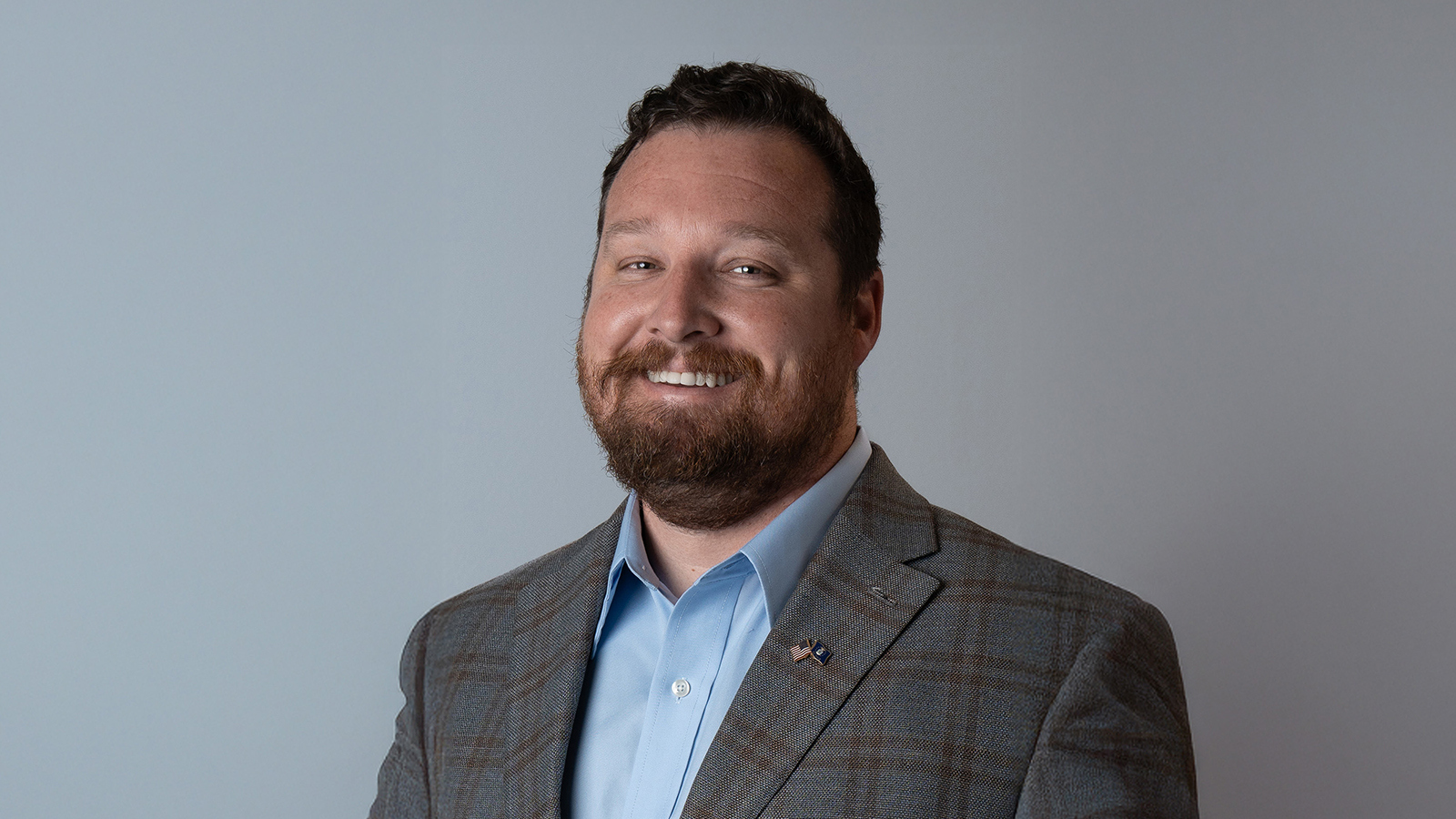Full Sail Stories
Published Nov 17, 2025
Faculty Spotlight: Aaron Hall (Military Student Success)
Air Force veteran and Director of Military Student Success Aaron Hall shares how he supports military-connected students and grads through Full Sail’s Military Student Success Center.

As Director of Military Student Success at Full Sail, Aaron Hall oversees initiatives that help veterans, service members, and military-connected students thrive on campus and online. His team blends student services, advocacy, and professional development with a “keep it simple, repeatable, and data-driven” approach. An Air Force veteran himself, Aaron draws from first-hand experience to build practical, student-centered support that prioritizes engagement, self-advocacy, and community.
What does your role entail and what’s a typical workday?
I oversee all military student initiatives – from student services and support to resources, advocacy, and outside partnerships. Day to day, I focus on Full Sail’s direction for military-affiliated support: Are we satisfying needs for campus and online students? Are we aligned with VA/DoD compliance and best practices? I track population health and outcomes like retention, graduation, employment, because having many military students isn’t the same as serving them well. While I’m often in leadership meetings and handling institutional tracking, I’m deeply involved in programming and recruitment events, and I empower my team to execute.
Tell us about your six years in the Air Force.
I began my service in Security Forces – essentially a cop – progressing from gate guard/entry control to security sentry for critical assets, patrolman, and desk sergeant. Later, I lateral-trained into Combat Arms Training and Maintenance to earn teaching credits before separating. In Combat Arms I was a weapons instructor and maintainer, qualifying and training people before they deployed, and ensuring all weapons were serviceable. I was stationed at Langley Air Force Base in Hampton, VA, was deployed to Iraq for two separate tours, completed a special duty at the Air Force Academy for two years, then was promoted to Staff Sergeant (E-5) and finished at Edwards Air Force Base in California. Along the way I completed my CCAF associate degree in Criminal Justice using military tuition assistance which started me on my own educational journey as a student veteran..
How does your military experience inform your work at Full Sail?
The teacher-training path and hands-on instruction experience from the Air Force ended up shaping the way I think about student support today. The military builds focused, mission-oriented people – but it doesn’t train you to be a civilian. That transition gap is real. I’ve lived it as a student and professional, so our office leans into clear, hands-on, repeatable support that mirrors how veterans learn best: show it, practice it, do it. Veterans respond to other veterans who’ve already navigated the path, so we translate experience and emphasize self-advocacy.
What support is available for military-connected students and grads?
We aim to be a one-stop shop. Our Discord-based Virtual Veteran Center lets students ask questions, get resources, and learn from peers and VA work-studies. On campus, we connect academics and external resources: the Orlando Vet Center is on site regularly to provide mental-health triage and counseling, while the Florida Department of Veterans’ Affairs visits biweekly for disability claims and state benefits. All of our services are inclusive – students, faculty, and staff can walk in or schedule appointments. We coordinate orientation with Financial Aid each month, participate in resource fairs, and run high-engagement events like monthly game nights, the Veterans Thanksgiving Dinner, and our growing 5K. We also provide Green Zone training for faculty and staff to increase military awareness. If it works for military students, we’ve found it often benefits the broader student body, too.
Why is a specialized support system important?
Research and experience make it clear: engaged students outperform. Specialized support creates belonging and sustained engagement, which improves outcomes. For veterans and their families, school is also a transition space where students are learning the industry and learning civilian life skills. We focus on practical help, community, and self-advocacy so students don’t just get answers; they learn how to get answers. Institutions have a responsibility to respect the sacrifices behind GI Bill benefits by delivering student-centered service and putting people in the best position to learn skills, tell their story, and get leads.
What do you enjoy most about your job?
Watching growth. Students often arrive unsure, then steadily find their footing personally, professionally, and academically. When they return to say, “thank you,” or you see a shy student become an engaged leader, that’s the payoff. I also value the autonomy to try new things without fear of failure. Our office iterates constantly, tracks what we do, and scales what works. Every month is a chance to improve programming, partnerships, or processes. My philosophy is simple: happy students create happy grads, and happy grads attract more students. None of this is about me; it’s about leaving the place better than we found it and making sure military-connected students feel their time, benefits, and trust were honored and turned into real results.



